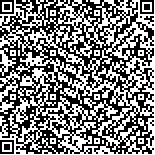本文已被:浏览 35次 下载 47次
Received:November 09, 2023 Published Online:June 20, 2024
Received:November 09, 2023 Published Online:June 20, 2024
中文摘要: 目的 探讨肠造口患者护理中基于互联网的智慧护理服务模式的应用效果。方法 回顾性选取2020年1月至2021年6月新疆维吾尔自治区人民医院肠造口患者100例,依据护理服务模式分为基于互联网的智慧护理服务模式组(智慧组)、常规护理服务模式组(常规组)两组,各50例,统计分析两组疾病认知程度、自我护理能力、应对方式、心理状态、生活质量、造口并发症发生情况、护理满意度。结果 智慧组患者的疾病认知程度评分、健康知识水平、自我责任感、自我概念、自我护理技能评分及自我护理能力测定量表总分均高于常规组(P<0.05)。智慧组患者的屈服、回避评分及医学应对方式问卷总分均低于常规组(P<0.05),面对评分高于常规组(P<0.05)。智慧组患者的焦虑评分、抑郁评分均低于常规组(P<0.05),造口管理、心理负担、日常起居、社会交往评分均高于常规组(P<0.05)。智慧组患者的造口并发症发生率8.00%(4/50)低于常规组24.00%(12/50)(χ2=4.762, P<0.05)。智慧组患者的护理满意度90.00%(45/50)高于常规组72.00%(36/50)(χ2=5.263, P<0.05)。结论 肠造口患者护理中基于互联网的智慧护理服务模式的应用效果较常规护理服务模式好。
中文关键词: 肠造口 常规护理服务模式 基于互联网的智慧护理服务模式 疾病认知程度 造口并发症
Abstract:Objective To explore the application effect of an Internet-based intelligent nursing service model in the care of patients with enterostomy. Methods A total of 100 patients with enterostomy in the People's Hospital of Xinjiang Uygur Autonomous Region from January 2020 to June 2021 were retrospectively selected. They were divided into two groups according to the nursing service model, Internet-based intelligent nursing service model group, and usual nursing service model group, each with 50 cases. The cognitive degree of illness, self-care ability, coping styles, psychological status, quality of life, incidence of stoma complications, and nursing satisfaction of two groups were statistically analyzed. Results Patients in the intelligent nursing service model group had higher disease perception degree scores, health knowledge levels, sense of self-responsibility, self-concept, self-care skills scores and exercise of self-care agency scale (ESCA) scores than those in the usual care service model group (P<0.05). The yield, avoidance scores and medical coping modes questionnaire (MCMQ) scores of patients in the intelligent nursing service model group were lower than those in the usual care service model group (P<0.05), and face-to-face scores were higher than those in the usual care service model group (P<0.05). The patients' anxiety scores and depression scores in intelligent nursing service model group were lower than those of the routine nursing service model group (P<0.05), while stoma management, psychological burden, daily living and social interaction scores were higher than those of the routine nursing service model group (P<0.05). The incidence (8.00%, 4/50) of stoma complications in patients in the intelligent nursing service model group was lower than the incidence (24.00%, 12/50) in the usual care service model group (χ2=4.762, P<0.05). The satisfaction rate (90.00%, 45/50) of patients in the intelligent nursing service model group was higher than the satisfaction rate (72.00%, 36/50) of patients in the conventional nursing service model group (χ2=5.263, P<0.05). Conclusion The application of the Internet-based intelligent nursing service model in the care of enterostomy patients is better than that of the usual care service model.
keywords: Enterostomy Usual care service model Internet-based intelligent nursing service model Degree of disease cognition Stoma complications
文章编号: 中图分类号:R473.6 文献标志码:B
基金项目:新疆维吾尔自治区自然科学基金(2020D01C103)
引用文本:
